Student Presentations in AI Research
Fresh
Perspective
Social work students offer a unique take on the impact of AI in the practice of social work.
UW-Green Bay students in social work are excited to share their presentations and discuss their findings. Each presentation is free of charge and qualifies for continuing education. These presentations offer fresh perspective and represent a new collaboration with the Department of Social Work at the university.

Virtual Presentations
Join us for six hour-long and comprehensive virtual presentations by UW-Green Bay bachelor's in social work (BSW) students. All students are required to research a subject of significant interest to the practice of social work.

Understanding AI: Definition, Impact on Privacy, Confidentiality & Trust During Crisis Intervention
Wednesday, March 5, 2025
11:30 a.m.-12:30 p.m. on Zoom
Learn how artificial intelligence (AI) can play a critical role in trust during crisis interventions. We will begin by defining what AI is and how we frequently utilize these advanced technologies in our daily lives. Then, we will explore the impact AI has on the privacy and confidentiality of clients while emphasizing the ethical considerations and best practices necessary to navigate these challenges. Finally, we will address the role that AI can play in crisis intervention, providing insights into how AI technologies can positively or negatively support response strategies in critical situations. An essential session for professionals seeking to understand the advanced technologies of AI in their practice to ensure they are equipped with the knowledge to responsibly incorporate AI into their work. Continuing education (special topics): 1 CEH/.1 CEH
Presenters
Amber LeMay, Lindsey Pankratz, Victoria Schewe, Nicole Nikodem, Emma Maas & Kassi Kissinger
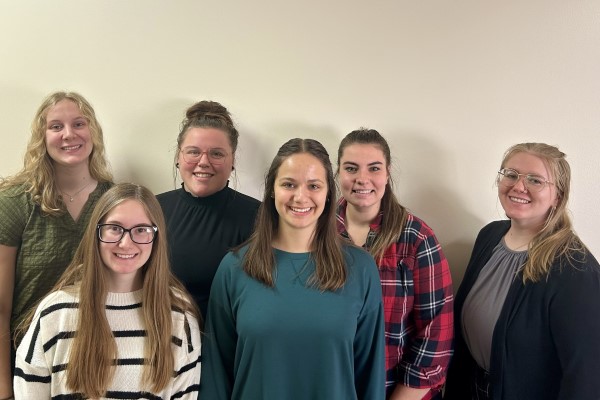

The Ethical Landscape of AI in Social Work Curriculum
Thursday, March 6, 2025
8:30-9:30 a.m. on Zoom
This presentation aims to provide social work educators with crucial insights and strategies for addressing the ethical implications of incorporating AI into their curriculum. Emphasizing a responsible and informed approach, it tackles key issues such as privacy, bias and human interaction. Our group will report findings from a survey we conducted with students from the UW-Green Bay, professors in the social work program, and state social workers. Participants will be equipped to foster a safe and supportive educational environment that upholds the ethical standards of AI use. Participants will engage in a webinar where we will actively invite and encourage audience participation. Continuing education (special topics): 1 CEH/.1 CEH
Presenters
Michaela Kosti, Olivia VandenPlas, Olivia Pautz, Cassi Kirkpatrick, Anna Wendorf & Cadeance Lindsley


AI's Role in Crisis Prevention & Intervention: What This Means for Wisconsin Social Workers
Thursday, March 6, 2025
11:30 a.m.-12:30 p.m. on Zoom
This presentation will explore how AI is currently used, how it may be used in the future, and the ethical implications for crisis prevention and intervention. Our discussion will involve educating on AI, ethical concerns, and accessibility. We will report on our findings from current research and survey results, sourced from reputable sources and Wisconsin social workers. We are seeking to answer the ethical implications of AI use in crisis intervention in social work practice. We will invite participation from Wisconsin social workers in our educational session. Continuing education (special topics): 1 CEH/.1 CEH
Presenters
Logan Nohr, Grace Fischer, Amber Hubbard, Katie Shaffer, Skylier King, Caleb Casey & Nathan Reszczynski
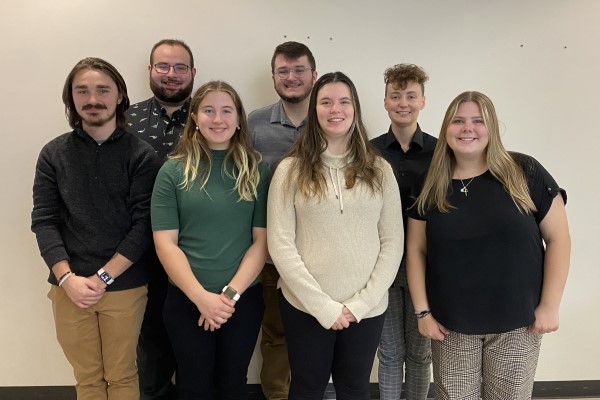

Teaching AI in Social Work: Bridging Educators' and Students' Aspirations
Friday, March 7, 2025
8:30-9:30 a.m. on Zoom
Explore the intersection between AI education in social work and students' learning expectations. We will examine how Wisconsin social work educators are currently incorporating AI into their curriculum and compare this to what students feel they need to know about AI for their future practice. The discussion will highlight potential gaps in current educational approaches, including areas where students may feel underprepared or experience confusion between multiple classroom policies and philosophies. Through a combination of research and findings the session aims to offer insight on how AI education can better equip future social workers to navigate technology. Continuing education (special topics): 1 CEH/.1 CEH
Presenters
Virginia Barrera-Valencia, Noelene Philipp, Grace Rabl, Heather Stanczak, Amarissa Stonebraker & Helen Verstoppen
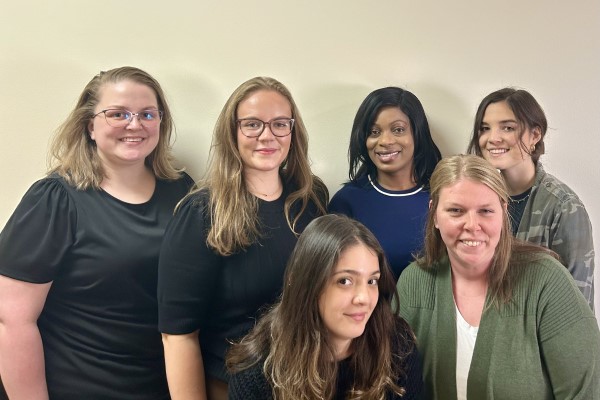

What are the Ethical Considerations that Policy Makers Should Explore for AI Implementation in Social Work
Friday, March 7, 2025
11:30 a.m.-12:30 p.m. on Zoom
Explore the ethical considerations that must be in place for developing the ethical utilization of AI in social work practice. We will be sharing our completed research project that discusses the impact of AI for Wisconsin social workers. The survey incorporated current practitioners, faculty and future social workers from UW-Green Bay and their impressions around AI being used in the social work field. In this training learners will learn the key findings and how learners will begin to implement effective and proactive policies within your agencies.
Presenters
Dezi Sobiesczyk, Jose Plascencia, Daniel Kozak, Abby Lamere Kate Thompson & Thalia Carreno
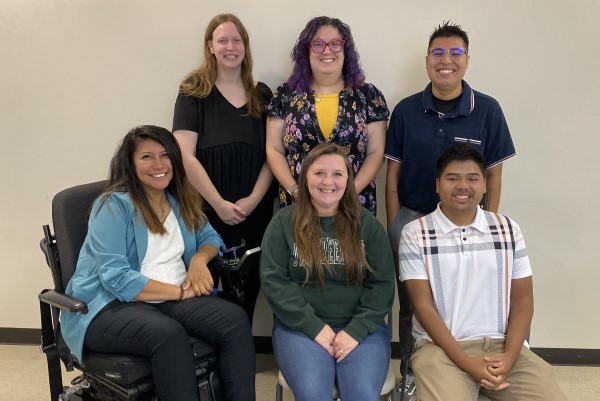

What Ethical Concerns Do Social Workers Have Regarding AI & Mental Health?
Friday, March 14, 2025
8:30-9:30 a.m. on Zoom
AI is such a new technology, we do not know what it all entails, especially in relation to mental health. We are answering the question: What impact does AI have on mental health throughout different age groups? We split our research into two groups. The groups were determined by whether or not the individual's frontal lobe is developing/developed or not developed, which is roughly the age groups of <25 and 25+ respectively. We will be pulling data directly from our survey findings from current Wisconsin social workers. We encourage audience participation. We will discuss how AI can play a role in diagnosing, assisting and analyzing mental health illnesses.
Presenters
Dani Challe, Gabrielle Siudzinski, Regin Hoffman, Taylor Long, Anna Wink & Lexi Weber
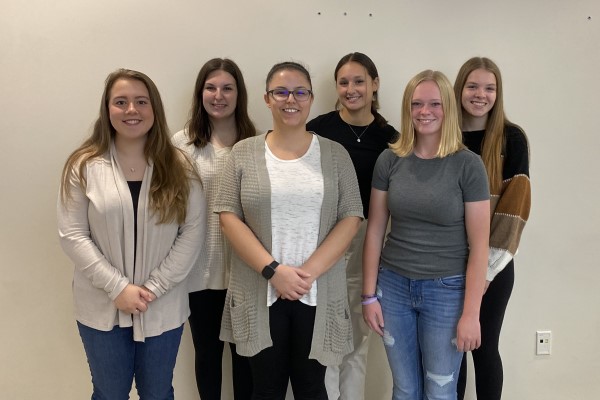

Need Guidance?
If you need additional guidance, please contact Kayle Petitjean, Office of Professional Continuing Education, at professionaled@uwgb.edu or (920) 465-2642.